IN THE NEWS
Princeton Celebrates ‘Magnificent Additions’ to Campus Yeh College and New College West
News . May 9, 2023
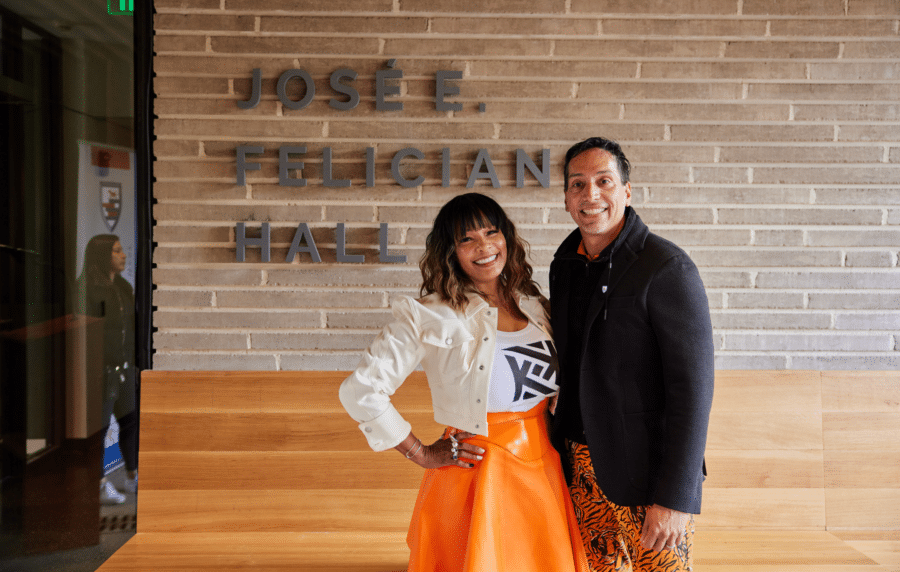
Source: Princeton
Princeton’s new residential colleges, Yeh College and New College West, were celebrated on Friday, May 5, as vibrant living-learning communities designed to foster connection, inclusivity and interactions among students. The new colleges, which opened last fall, are part of the University’s commitment to make a Princeton education accessible to more high-achieving students from all backgrounds.
The daylong event brought together University leaders, alumni, faculty, staff and students for architect-led tours, demonstrations within signature spaces like the state-of-the-art ceramics studio, and discussions with students and college staff.
“It’s truly an honor for me to be with all of you today as we celebrate these magnificent additions to our campus, and thank the Princetonians whose generosity made them possible,” President Christopher L. Eisgruber said as he welcomed guests.
The addition of Yeh College and New College West to the University’s residential colleges system supports the University’s plans to expand the undergraduate student body by 500 students over four years — an increase of approximately 10%. The first-year Class of 2026 is the largest in Princeton’s history; 17% of class members are first-generation college students and 21% are lower-income students eligible for Pell Grants.
“One of the University’s highest priorities is to expand our undergraduate population to ensure even more talented individuals can benefit from a Princeton education and then go out into the world to make a difference,” Dean of the College Jill Dolan said.
Class of 1987 graduate James Yeh and his wife, Jaimie Yeh, made a major gift to the University’s Venture Forward campaign to support the naming of Yeh College. “It has been incredibly rewarding and humbling for Jaimie and me to have the opportunity to work with all of you on this project to give more students of all backgrounds the benefits of a Princeton education,” Yeh said.
The University celebrated the new buildings and spaces in a string of ceremonies May 5. In the morning, friends and guests gathered at Yeh College for separate ribbon-cuttings to dedicate Mannion Hall, Hariri Hall, Choi Glass Box Studio and Choi Dining Hall. At lunch, Eisgruber and other speakers presided over the dedication and ribbon cutting for Yeh College and New College West. In the afternoon, ceremonies shifted to New College West for dedications of Kanji Hall, Addy Hall, Kwanza Jones Hall and José E. Feliciano Hall.
Class of 1993 graduate Jones and Class of 1994 graduate Feliciano met as Princeton undergraduates and had their first date near the site of where Kwanza Jones Hall and José E. Feliciano Hall now stand. The dormitories are adjacent to one another and are the first two Princeton buildings named after Black and Latino donors.
Kabir Singh, a first-year in the Class of 2026, said it’s meaningful to reside in the dormitory. “Living in José E. Feliciano Hall is a daily inspiration for students like me. It creates a deep and unspoken sense of belonging every day,” Singh said in remarks presented at the college celebrations. Other students shared what they enjoy about living in Yeh College and New College West in a video on Princeton’s YouTube.
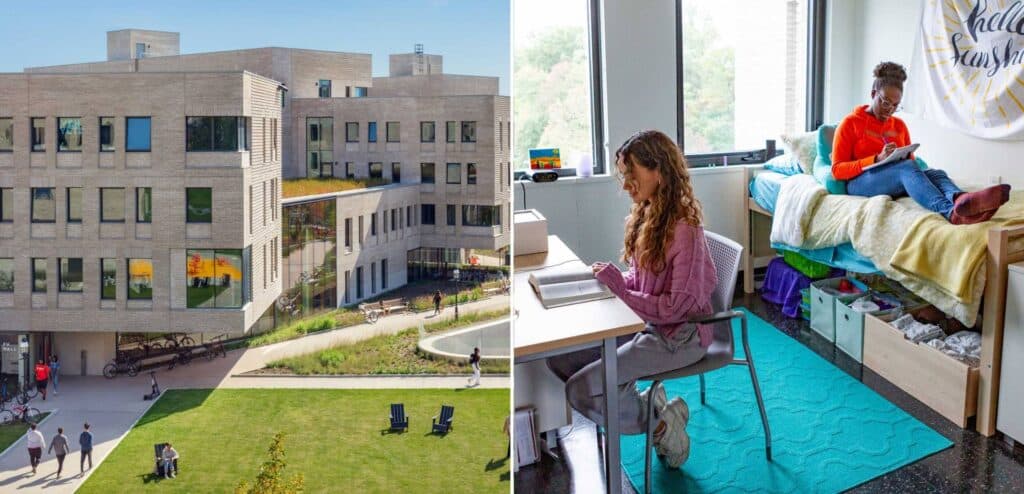
Left photo by Christopher Payne/Esto; right photo by Denise Applewhite, Office of Communications
Designed to foster community and support students
Situated along Elm Drive near Poe Field, the adjacent Yeh College and New College West were designed by the architectural firm TenBerke (formerly Deborah Berke Partners) and landscape architect James Corner Field Operations, with the goal of creating a welcoming, comfortable and transparent space for students. The project was recognized with a 2023 New York American Institute of Architects (AIA) award.
“In the design of Yeh and New College West we see how architecture and landscape … are at the service of Princeton’s values,” University Architect Ron McCoy said. “In this place, expressions of transparency, light, materials, craft and landscape are brought together to support very specific institutional values of belonging, community and curiosity.”
The new buildings are filled with light thanks to the many floor-to-ceiling windows. Colorful interiors aim for a comfortable, living-room feel that fosters student connections, with common areas and study spaces throughout the complex.
The Choi Dining Hall, which overlooks a central courtyard that connects the two colleges, has quickly become a popular dining spot on campus. Other features include the Choi Glass Box Studio, a student performance and rehearsal space with large glass-paneled sliding doors that open onto a garden, as well as lush outdoor space enlivened with three brightly colored sculptures called “The Home We Share” (2022) by R&R Studios of Miami.
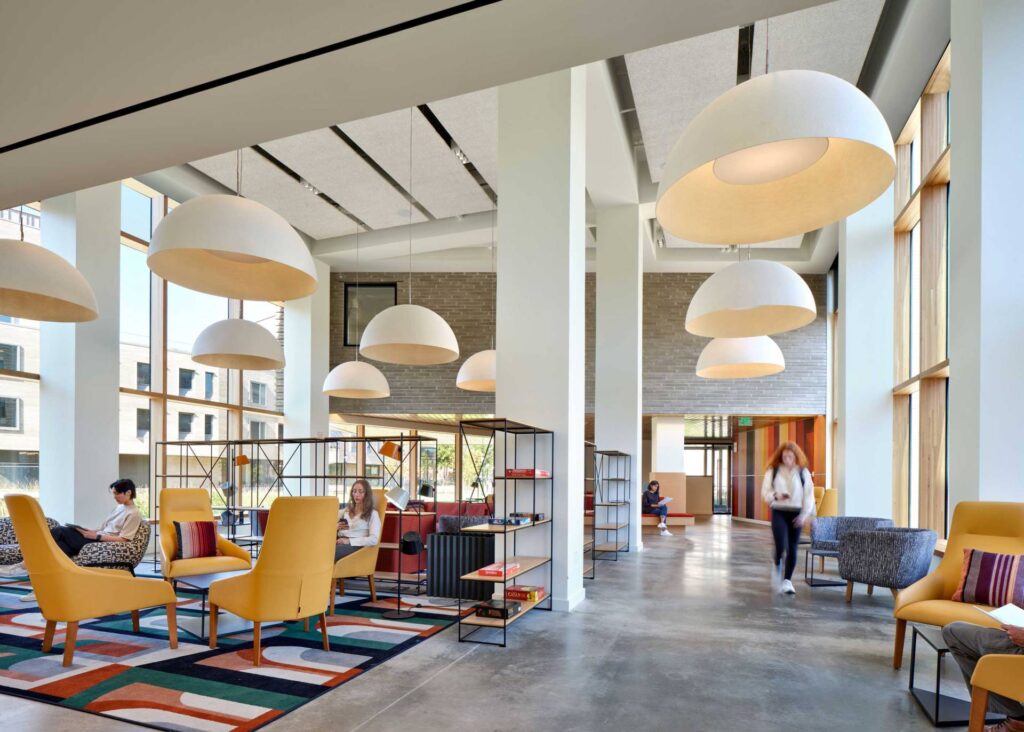
Photo by Chris Cooper
Class of 2023 member Emma Wang, a residential college adviser in New College West, said the design has been especially wonderful at fostering new friendships and lively student interactions, given the comfortable common spaces, bright interiors, ample outdoor spaces and amenities like the student-run coffee club.
“This is the best for meeting new people and facilitating community,” Wang said, adding that the college’s amenities and common spaces are enjoyed by many across campus. “This is also a popular place for the whole student community to hang out or study together, not just for the people who live here.”
“Our students are truly the spirit of this college,” said Head of New College West AnneMarie Luijendijk, the William H. Danforth Professor of Religion. “You can hear it in the melodies flowing from our grand piano in the Commons. You can see it in the art being created — by beginners and pros alike — in our ceramics studio. And you can even smell it in the aromas wafting from our dining hall … and from our amazing demonstration kitchen.”
Head of Yeh College Asif Ghazanfar, professor of psychology and neuroscience, said the buildings’ design allows living and learning to blend seamlessly. “In less than one academic year, I’ve seen the Princeton spirit in action, as students and staff support each other, forge new traditions and transform brick-and-mortar facilities into a dynamic community,” he said.
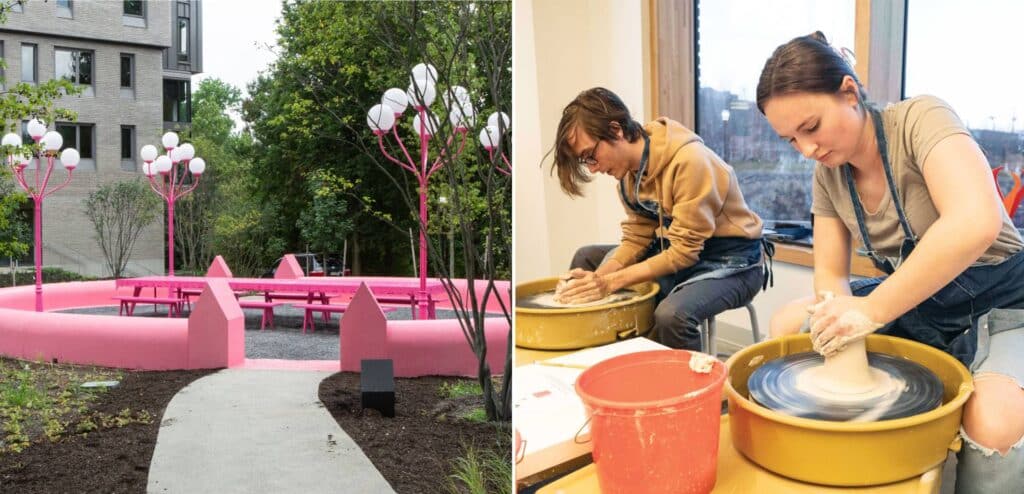
Photo by Denise Applewhite, Office of Communications
Where students live with and learn from each other
Residential colleges have been a signature part of Princeton’s educational model for more than 40 years. The colleges foster environments where all members of a diverse campus community can live with and learn from each other.
“By design they bring together people from diverse backgrounds, geographies, and perspectives, with the aim of creating communities in which all feel included,” Eisgruber said.
Princeton currently has seven distinct residential colleges that provide students with housing and dining, academic advising, health and wellness resources, peer mentorship, and a range of other academic and co-curricular programs.
“Residential colleges see students holistically; their academic and personal lives are not separate from one another but they happen at the same time,” said Garrett Meggs, the assistant dean for student life in New College West.
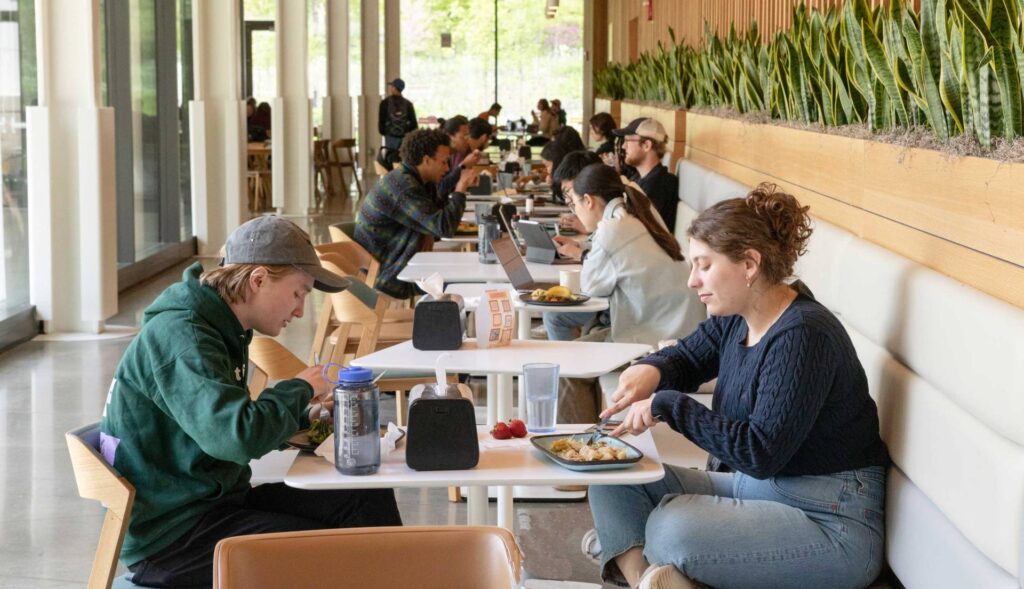
Photo by Denise Applewhite, Office of Communications
Undergraduates interact across class years within the residential colleges, which are led by a faculty head and include staff such as college deans, directors of studies, assistant deans for student student life and residential life coordinators.
Dolan said residential colleges define campus life at Princeton. “Undergraduates live and learn together in vibrant, immersive environments, with on-site access to faculty and peer leaders. These deeply human and humane resources and many other intricate and effective support structures help our students thrive,” she said.
Resident graduate students also live in the colleges, providing an opportunity for graduate students to mentor undergraduates. Austen Van Burns, a doctoral candidate in history who lives in New College West, joked that the fresh bread she often bakes on Sundays has led to new friendships on her floor.
“As graduate students we don’t always get a chance to interact with undergraduates, so it is really nice to have this community,” Van Burns said. “I talk to seniors who are working on their theses and it has become a really nice way to have an interdisciplinary academic community that is not just based in my department.”
Yeh College is Princeton’s 7th residential college, while New College West is home to undergraduates from the former First College. Construction of Hobson College, which will become the University’s 8th residential college, is underway on the site of the former First College.
The projects mark the University’s transition to a fully integrated four-year residential college system, where all of the colleges will offer housing for first-years through seniors.
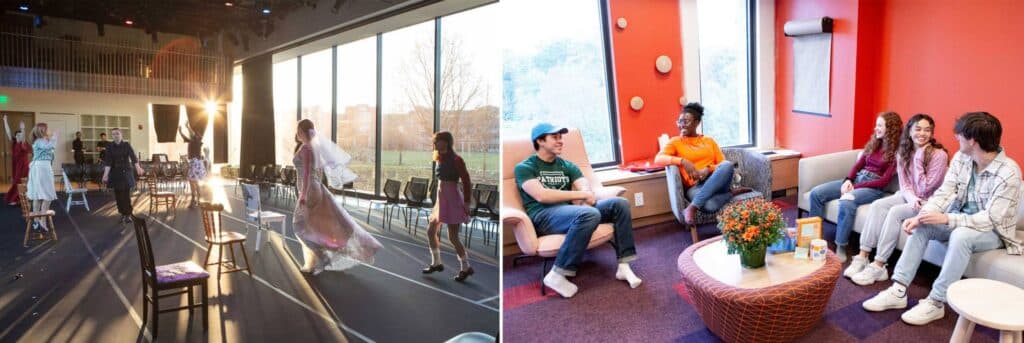
Photos by Denise Applewhite, Office of Communications
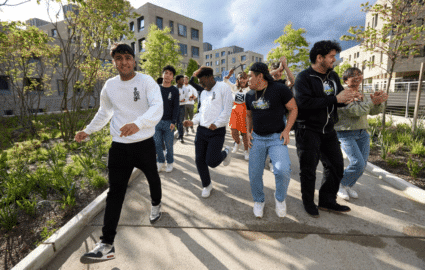

Share this article: